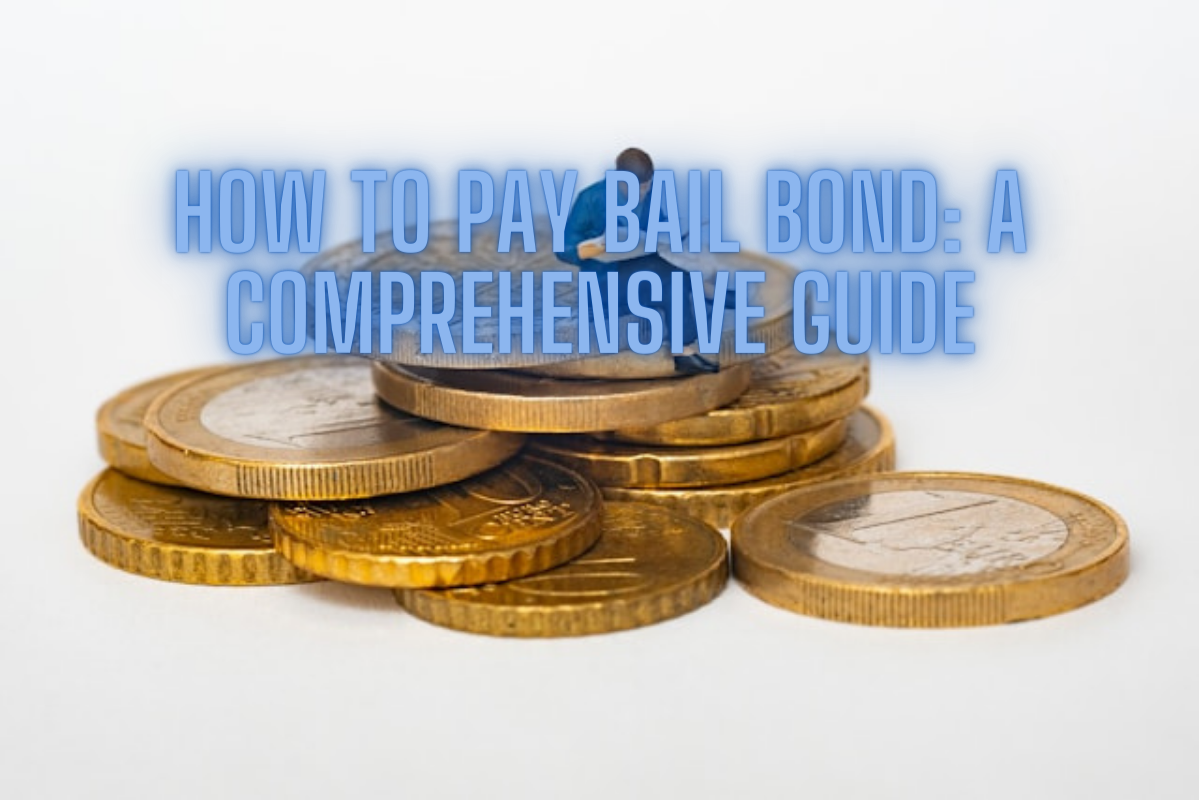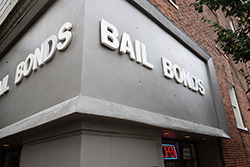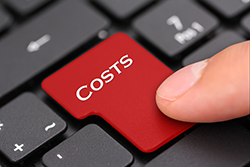Paying a bail bond can seem complicated if you haven’t done it before. However, the process is more straightforward than you think.
If you want to pay a bail bond, this guide can help. We run through how to make these payments, where bail bond money goes, and how much agents should charge. We also explore acceptable bond payment formats, like cash, credit cards, and checks.
How to Pay Bail Bond: A Step-by-Step Guide
Paying a bail bond in California secures the defendant’s release from jail and lets them return to their life during the pretrial period. It is a tool that ensures their rights and prevents law enforcement officials from keeping them behind bars indefinitely.
But how do you pay for a bail bond? Here’s a step-by-step guide:
Step 1: Find Out How Much The Bail Will Cost
The first step is to find out how much the bail will cost. Judges should provide this information within two working days of the arrest.
Contact the defendant’s jail and speak to the attending officer to learn more. Alternatively, attend their bail hearing in person.
Step 2: Decide Whether You Will Pay Cash Or Use A Bail Agent
The next step is to decide on cash bail or use a bail agent. The first option requires you to have sufficient cash to pay upfront. The second reduces your costs, but you may need to become a co-signer.
Bail agents ask for 10% of the bail amount in California (and sometimes less). But unlike paying bail directly, you don’t get this money back when the defendant completes court proceedings.
Step 3: Draw Up A Bail Bond ContracIf you decide to take out a bail bond, research and choose a reputable bail bond company to work with. Signs of a quality agency include:
- Offering bilingual support
- Including the administration and paperwork in the price
- Being available 24/7
- Offering discounts for specific groups, like military veterans
During this step, you may need to put up collateral when paying the bail bond fee. This arrangement gives the bail agency additional surety if the defendant fails to attend court.
Step 4: Get The Bail Agent To Pay The Bail
Once you pay the bail bond fee and offer any required collateral, the agent will complete the required documentation and post bail with the court, paying in cash from its reserves. The court will then note the receipt of payment and release the defendant within a few hours.
Step 5: Ensure The Defendant Attends Their Hearings
The final step is to ensure the defendant attends their hearings. Fulfilling their legal obligations ensures that the person posting the bail gets their money back (either you or the bail agent), reducing your liabilities. For instance, if you pay the bail in cash, you will receive the money back in full. Likewise, if the bail bond agent paid, they will receive the money and won’t chase you to recoup their losses.

What Happens to Bail Bond Money: Explained
A bail bond is paid to the bail bond agent to secure the defendant’s release. The agency takes this money as a service fee and then posts the full cash bail with the court.
You can’t get this money back because it is a payment for the bail agent’s services. Bail bond brokers use it to keep their businesses running and to reimburse their staff.
When the agent posts cash bail, the court holds the money until the end of the court proceedings. Then, officials review the defendant’s conduct to assess whether they adhered to the bail terms.
If they did, the court will return the cash to the bail agent, who will then close the defendant’s case (whether the court sentences them or not). If they didn't, the court takes possession of the money and distributes funds according to rules set by the California State Controller’s Office. Some money goes to the State’s general fund, while other parts go to the cities and counties that spent funds on the defendant’s arrest.
California also sometimes allocates forfeited bail funds to initiatives focused on improving the legal system. The money enhances efficiency and can improve access to public representation for defendants who can’t afford a private criminal defense.
The Role of a Bail Bondsman: Required Percentage for Posting Bond
California limits how much bail bond agents can charge for their services. The law states they cannot ask for more than 10% of the bail amount. For example, defendants can pay agents up to $10,000 on a $100,000 bail to cover their costs and risks, but no more.
Most bail bond agencies have special discounts or lower prices for specific groups of people. These perks cut what they pay, sometimes to as low as 6%.
Clearing the Confusion: Do Bail Bonds Charge Extra Fees?
Quality bail agents will never request you pay additional or hidden fees in addition to the upfront, non-refundable premium. However, some companies can still charge for various items, including:
- Background checks
- Unanticipated administrative tasks
- Paperwork processing
- Priority services
Bail agents may also request you provide collateral (whether you are a co-signer or the defendant). Telling the agency they can sell your assets in the event the defendant breaks their bail conditions reduces risks and enhances the likelihood of securing a bond.
Can You Call a Bail Bondsman to Verify the Bond Payment?
Unless you paid the bail bond, you can’t contact the bail bond agent to confirm payment. Bond agencies maintain these rules to protect data privacy.
If you paid, the bail bond agent will call you to confirm a bail bond payment once the money arrives in their account. You should also receive a receipt in your email or one mailed to your address.
Before you choose a bail agent, discuss their procedure for verifying payments. Some agencies provide a single point of contact (a person who manages your account), an online portal, or both to make your life easier.
If you can’t verify the bond payment with these options, you can ask the defendant to ring and check for you. The bail agent will tell them if they have the funding they require and where they are in the court release process.
Accepted Forms of Payment for Bail Bonds: What You Need To Know
Bail bond agencies accept various payment options to make life easier for defendants and their co-signers. Here’s a rundown:
- Cash. Cash is the most straightforward and widely accepted payment method. Bail bond agents will accept it immediately, beginning the release paperwork as soon as possible.
- Cashier’s check. You can also sometimes pay by cashier’s check. However, bail bond agents may not begin working on the defendant’s case until they have the cash deposited in their account.
- Debit card. Bail agents accept debit cards like other services and retailers to make payment more convenient for customers over the phone or online. Debit card payments enable agencies to begin working immediately.
- Credit card. Similarly, you can pay by credit card. However, agencies are less willing to accept these because of the higher risk of chargebacks.
- Collateral. You can sometimes get a bond by putting up car titles or real estate as surety. However, you still need to pay the fee.
- E-wallets. Payments by e-wallets are less common because of the risk of disputes. However, some bail bond agencies will accept them.
Before paying any bail bond fee, shop around. Find bondsmen offering the best service at a reasonable price.
Some agencies offer financing on bail bonds. These let you pay the fee over several installments instead of a single upfront transfer.
Securing a finance agreement may require paying a deposit. Putting money down reduces the lender’s risk. However, you can sometimes get no-money-down payment plans if you have an excellent credit score.
Consider your payment method wisely. Credit and debit cards are convenient, but you might have limits on how much you can pay. Cash and checks require going to the bank and holding money on your person.
Avoid going to the lowest-cost provider. Agencies offering too-good-to-be-true fees may skimp on services or might not have the proper licenses or registrations.
Paying A Bail Bond: Now You Know What To Do
Having read this guide, you should have a better understanding of how to pay a bail bond. It involves paying a fee to a bail agent and waiting for them to post cash bail with the court.
You shouldn’t need to pay more than 10% of the original bail amount for a bond in California. If an agent asks you to pay for more than this or charges hidden fees, don’t use them.
Talk to our team to learn how to pay a bail bond. We’re ready and waiting to help you, whether you are a defendant in jail or a concerned friend or family member.







